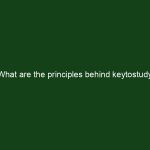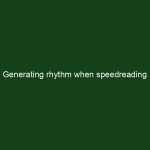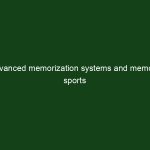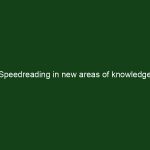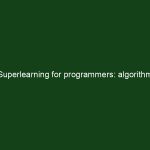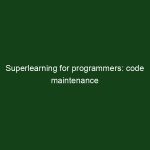Memory palace/loci is the oldest method available for memorization, and still it feels like we are very far from using its full potential. If you are interested using memory palace for any specific application, I suggest you to try Anthony Metivier’s books. Anthony has demonstrated how memory palaces can be used virtually for anything with …
KeyToStudy Offers:
Memory, Speedreading, and Analysis
KeyToStudy Overview:
Memory, Speedreading, and Analysis
ProlificFocus Overview:
Productivity, Motivation, and Projects
ProlificFocus Offers:
Productivity, Motivation, and Projects
Mindmapping
So far I have referenced Tony Buzan books for mindmapping. I am realizing that I need to give my students a short and useful explanation of how to use mindmapping and why. This post is intended to be useful, so I will not go into historical, classical and programmable aspects of mindmapping, but focus on …
Superlearning for languages and definitions: etymology method
Very often I ask students to understand the meaning of what they are trying to learn and use very accurate markers. I want to demonstrate it on etymology. Take for example this real conversation: EY: I can create images to the words in the dictionary (some easier than others), but my main problem is that …
Continue reading “Superlearning for languages and definitions: etymology method”
What are the principles behind keytostudy methodology?
With recent success of our “Become a superlearner” Udemy class and book with the same name, I am often reminding myself our humble beginnings and principles that became key to our methodology. The keytostudy methodology was built as a result of many years of research by Anna Goldentouch and myself. The methodology is built upon …
Continue reading “What are the principles behind keytostudy methodology?”
Generating rhythm when speedreading
When teaching speedreading we often ask our students to use rhythm. In this post we describe the issue of rhythm in depth. A usual effect of lack of rhythm was summarized by on of our students “First 5 min are easy then getting harder, I slow down and I have to rest”. Usually this means …
PAO memory technique
PAO is one of the most advanced and yet fun to use techniques. PAO means person-action-object. It is commonly used in memory championships. As far as I know (could not find a link) PAO was invented by card-counters. Each card face was associated with personality – Kings, Queens, Princes – and even with specific royalty …
Advanced memorization systems and memory sports
Superlearning or speedreading are hard to measure and monitor. Memory is easily measurable, and therefore memorization skills are a sport. The best thing about sports is our ability to learn which methods work better than others to remember a huge amount of information. Moreover, as sport develops, the methods become increasingly elaborate. Memory palace/loci. This …
Continue reading “Advanced memorization systems and memory sports”
Speedreading in new areas of knowledge
Some of our readers ask for tips on becoming a more well rounded reader. For example: “I found it harder to read a article that uses words and wording I am not used to. Being unsure about the words makes it even harder when speed reading. Practicing it, should make it easier, so you won’t …
Superlearning for programmers: algorithm development
My first job was database administrator. My second job was an RF engineer. My third job (back in 1999) was under title “algorithm developer”, and that was the first job I really loved. Since then I have been algorithm developer/CTO on and off, dealing with computer vision, image procession, machine learning, financial mathematics, semantic processing, …
Continue reading “Superlearning for programmers: algorithm development”
Superlearning for programmers: code maintenance
There are many ways speedreading can help a programmer. The first time I wished I could speedread was back in he year 2000, when I had to maintain a code of 1mil lines. Back then I could not speedread, and eventually could not fix all the problems I made in time. The product did not …
Continue reading “Superlearning for programmers: code maintenance”



